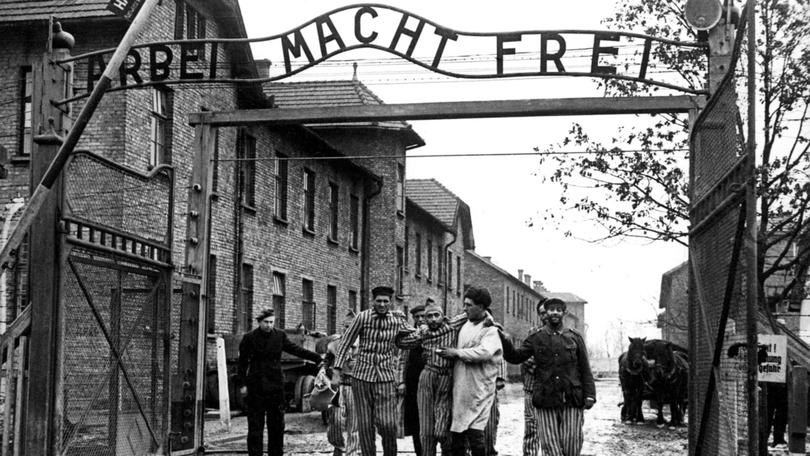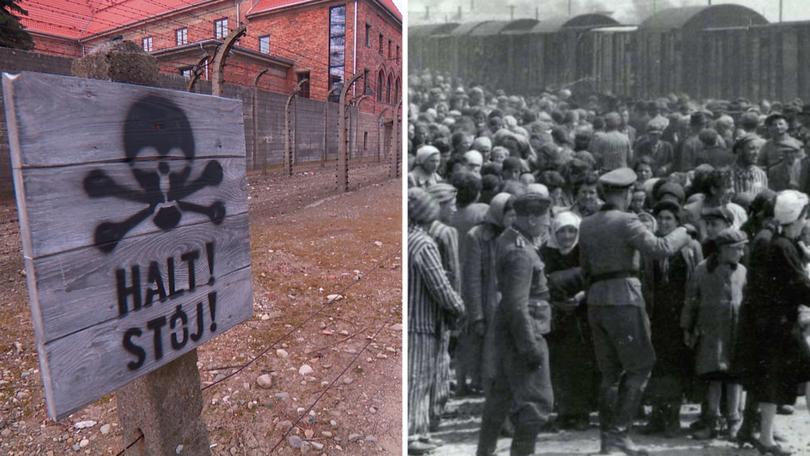DVIR ABRAMOVICH: We must ensure the horrors of Auschwitz are never forgotten and never repeated
DVIR ABRAMOVICH: This anniversary is a moment of reckoning. When we allow anti-Semitism to fester, we are not just failing the Jewish community — we are failing humanity itself.

Eighty years have passed since the iron gates of Auschwitz were flung open, revealing the most horrific depths of human depravity.
The snow-covered barracks held skeletal figures barely clinging to life, their sunken eyes mirrors of unspeakable suffering.
The Soviet soldiers who liberated the camp were confronted with a scene so grotesque, so unfathomable, that many were rendered silent.
Sign up to The Nightly's newsletters.
Get the first look at the digital newspaper, curated daily stories and breaking headlines delivered to your inbox.
By continuing you agree to our Terms and Privacy Policy.The air still carried the acrid stench of burning flesh from the crematoria, and scattered across the grounds were heaps of children’s shoes, piles of hair, and empty suitcases — silent testimonies to lives extinguished in the blink of an eye.
Auschwitz was not just a death camp — it was a meticulously constructed hell on earth, where over 1.1 million souls, including children clutching their mothers’ hands were exterminated.
The Holocaust as a whole was a cataclysm of human suffering on an unimaginable scale. Alongside tens of thousands of Roma, disabled individuals, political dissidents, LGBTQ+ people, and others deemed “unworthy of life” by the Nazi regime, six million Jewish men, women, and children were consumed by the Nazi machine of murder.
Entire families vanished in an instant, their voices silenced, their dreams obliterated.
Imagine the arrival: the clattering of cattle cars, the suffocating stench of fear, and the brutal efficiency of selections. Families ripped apart in an instant — a father shoved one way, a daughter another. For most, the destination was the gas chambers. Zyklon B poured into these sealed chambers, stealing breath, life, and dignity.
The cries of the dying were muffled by concrete walls, their remains fed to the relentless flames of the crematoriums. Dr Mengele, a monster cloaked in a doctor’s coat, performed unspeakable experiments, treating human beings as disposable specimens.
This was not a mere crime — this was the abyss of human morality, a black hole that swallowed decency, compassion, and humanity. How does one even begin to fathom the systematic annihilation of six million Jews and millions of others deemed “unworthy of life”? Auschwitz is not just a site of remembrance; it is a scar etched into the soul of humanity, a permanent reminder of what happens when evil is left unchecked.
And yet, here we are, as we mark International Holocaust Remembrance Day, standing at a crossroads where memory and history threaten to be swallowed by indifference and hate.
Even with the ashes of Auschwitz still heavy in our collective consciousness, here, in, a new chapter of anti-Semitism is being written.
Swastikas deface playgrounds where children laugh. Jewish students are bullied and taunted in schools. Synagogues, sacred spaces of worship and solace, are now firebombed. And just last week, anti-Jewish graffiti marred a childcare centre that was set alight.
Eighty years after Auschwitz, the poison of hatred is not only lingering — it’s spreading.

These acts are not isolated. They are links in a chain of hate that threatens to tighten around our communities, suffocating unity and tearing apart our shared humanity.
What is most chilling is that history teaches us these acts never exist in a vacuum. The hateful word scrawled on a wall, the mocking slur in a schoolyard — these are not small acts of ignorance. They are embers that can ignite into infernos.
Auschwitz did not emerge overnight. It began with words, with stereotypes, with the slow, insidious normalisation of anti-Semitism. To dismiss these warning signs as trivial is to invite history to repeat its darkest hour.
This anniversary is a moment of reckoning. Auschwitz implores us to confront an unyielding truth: indifference is complicity. When we turn a blind eye to hate when we allow anti-Semitism to fester, we are not just failing the Jewish community — we are failing humanity itself.
Every hateful chant screamed, every act of vandalism is a dagger aimed at the heart of our democracy and our foundation of multiculturalism.
So, what must we do? First, we must commit to unrelenting education. Holocaust education is not a luxury; it is a necessity.
Every Australian student should know the stories of Auschwitz — not as abstract history, but as visceral human experiences. They must learn of the gas chambers, the crematoriums, the cattle cars, and the human beings reduced to numbers tattooed on their arms. They must understand that the Holocaust is not just a Jewish tragedy; it is a human tragedy.
Second, we need ironclad laws that make hate a crime with real consequences. Glorifying genocidal ideologies or trafficking in anti-Semitism should never be brushed aside as freedom of expression. These are acts of violence, plain and simple.
Finally, we must demand leadership that calls out anti-Semitism at every turn, without equivocation. Leaders who remain silent are accomplices to injustice.
The survivors of Auschwitz are dwindling, their voices growing fainter with time. Soon, we will have only their words, their photographs, their fading tattoos. But their legacy demands action.
We must ensure that the horrors they endured are never forgotten and never repeated. Let us vow that when future generations look back, they will see a society that chose courage over complacency, love over hate, and unity over division.
Auschwitz stands as a warning. The question is: Are we listening?
Dr Dvir Abramovich is the chairman of the Anti-Defamation Commission
